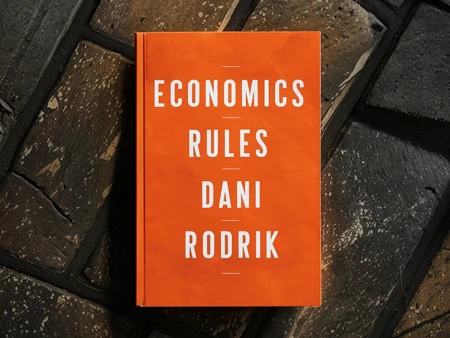Economics Rules – The Rights and Wrongs of the Dismal Science

Blurb
A hugely valuable contribution. . . . In setting out a defence of the best in economics, Rodrik has also provided a goal for the discipline as a whole.” —Martin Sandbu, Financial Times
In the wake of the financial crisis and the Great Recession, economics seems anything but a science. In this sharp, masterfully argued book, Dani Rodrik, a leading critic from within, takes a close look at economics to examine when it falls short and when it works, to give a surprisingly upbeat account of the discipline. Drawing on the history of the field and his deep experience as a practitioner, Rodrik argues that economics can be a powerful tool that improves the world—but only when economists abandon universal theories and focus on getting the context right. Economics Rules argues that the discipline's much-derided mathematical models are its true strength. Models are the tools that make economics a science. Too often, however, economists mistake a model for the model that applies everywhere and at all times. In six chapters that trace his discipline from Adam Smith to present-day work on globalization, Rodrik shows how diverse situations call for different models. Each model tells a partial story about how the world works. These stories offer wide-ranging, and sometimes contradictory, lessons—just as children’s fables offer diverse morals. Whether the question concerns the rise of global inequality, the consequences of free trade, or the value of deficit spending, Rodrik explains how using the right models can deliver valuable new insights about social reality and public policy. Beyond the science, economics requires the craft to apply suitable models to the context. The 2008 collapse of Lehman Brothers challenged many economists' deepest assumptions about free markets. Rodrik reveals that economists' model toolkit is much richer than these free-market models. With pragmatic model selection, economists can develop successful antipoverty programs in Mexico, growth strategies in Africa, and intelligent remedies for domestic inequality. At once a forceful critique and defense of the discipline, Economics Rules charts a path toward a more humble but more effective science.
Comment from our editors:
Dani Rodrik reflects in this book on important questions about how economics works and what might be wrong with it. He points out flaws and weaknesses of the discipline, but also argues that certain criticisms which have brought forward against it are without merit. His central point is that there is not just one economic model, but a variety of them and that it is important to apply judgment when selecting the most suitable one for a particular situation.

